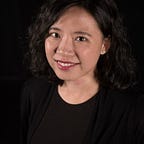Does it matter if the founder of an LGBT project is (not) gay?
We’re all facing a variety of challenges during the whole process of building up our startups. The challenge I’m facing is quite interesting and extraordinary. My project, PinkPower, is about the LGBT market. The subjects and objects for this venture are sexual minorities, not food, not aviation, not VR. They are people. Generally speaking, these are a group of people who have been mistreated. Many have been living in closets for a long time. I believe the keys to success for PinkPower are related not only to the business itself, but to emotion, affection and identities.
During recent months of talking to LGBTs and writing about them, I got the message that some of them highly doubt whether I can understand them, think of what they think, feel how they feel, as I’m not living a life in this community. That’s understandable and reasonable. If this metaphor is appropriate, it sounds like a white woman is doing a project for black people. People would instinctively ask, “what the hell does she know?” But am I ready and do I need to talk about my sexual orientation and personal relationships with my audience?
Secondly, the LGBT market is dominated by gay men. Lesbian women are the minorities in this minor society. My byline on WeChat was Pinky at first, and then considering 70% of readers are men, I think it’s too girlish, so I changed it to Brother Pink on purpose, to create a more convincing, tough and queer image. That’s how I deal with gender inequality in the LGBT community. This trick might be totally anti-feminist. But I’m doing business, not politics. I’m sorry.
